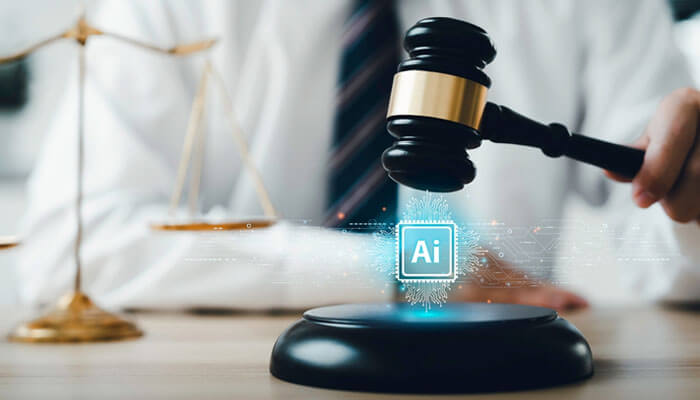The legal profession has long been defined by tradition, extensive research in law libraries, carefully drafted arguments, and meticulous preparation that can span weeks or months. However, in recent years, technology has begun to reshape this landscape, with AI tools emerging as one of the most significant developments.
AI is no longer a futuristic concept; it is now a practical resource that lawyers are integrating into their workflows to improve efficiency, accuracy, and strategy. Much like you can easily print greeting card for free using online design tools, law firms today have access to AI solutions that simplify complex tasks and make advanced capabilities more accessible than ever before.
Transforming Legal Research
Legal research is the foundation of effective case preparation. Traditionally, it required painstaking manual review of case law, statutes, and regulations often taking days or even weeks. AI powered research platforms have streamlined this process by:
- Rapid Data Processing: Scanning millions of documents in seconds.
- Contextual Filtering: Delivering results relevant to the specific facts of a case.
- Comprehensive Coverage: Identifying precedents that might otherwise be overlooked.
By reducing the time spent on information gathering, AI allows lawyers to allocate more resources to strategic planning and client consultation.
Predictive Analytics and Strategic Planning
Predictive analytics is one of AI’s most valuable contributions to legal practice. By analyzing historical case data and identifying patterns, AI tools can:
- Estimate the likelihood of a favorable judgment.
- Suggest optimal settlement ranges.
- Forecast potential trial durations.
While these predictions are not guarantees, they provide lawyers with data driven insights that can enhance decision making and help manage client expectations.
Automating Document Review
Document review is another labor intensive aspect of legal work, especially in large scale litigation or corporate transactions. AI driven review tools can:
- Detect critical clauses and irregularities in contracts.
- Highlight potential compliance issues.
- Sort and categorize documents automatically.
Automation not only accelerates the review process but also reduces the risk of human error, ensuring greater accuracy in case preparation.
Assisting with Legal Drafting
Beyond review, AI is now assisting in drafting legal documents. Leveraging preapproved templates and established legal language, AI tools can produce initial drafts of briefs, motions, or contracts in minutes.
These drafts still require attorney oversight, but starting with a structured foundation allows legal teams to save time and focus on tailoring arguments and clauses to the specifics of each case.
Preparing for Virtual Hearings
The growth of remote hearings since the COVID19 pandemic has introduced new challenges. AI has played a key role in helping lawyers adapt by providing:
- Courtroom Simulation Software: Allowing attorneys to rehearse arguments and cross examinations.
- Real Time Transcription: With keyword tagging for quick reference during proceedings.
- Data Driven Visual Aids: Such as interactive timelines and digital exhibits to support oral arguments.
These tools ensure that legal professionals can deliver persuasive presentations regardless of whether a case is heard in person or virtually.
Ethical Considerations
The integration of AI into the legal profession must be approached responsibly. Key ethical concerns include:
- Data Privacy: Protecting sensitive client information when using AI systems.
- Bias Prevention: Ensuring algorithms do not perpetuate existing prejudices in the legal system.
- Transparency: Clearly communicating to clients when and how AI tools are employed in their cases.
Law firms adopting AI should implement policies and training programs to address these concerns and comply with professional standards.
AI as a Partner, Not a Replacement
A common question is whether AI will replace lawyers. The reality is that AI is most effective as a partner handling repetitive, time consuming tasks while leaving complex legal reasoning, advocacy, and negotiation to human professionals like https://www.sthelenslaw.co.uk/.
This partnership enables lawyers to:
- Spend more time on high value client interactions.
- Craft nuanced arguments that require human judgment.
- Leverage technology to work more efficiently without sacrificing quality.
Looking Ahead
As AI technology continues to evolve, its role in legal practice will expand further. Anticipated developments include:
- Realtime strategy recommendations during trial.
- Fully integrated case management with automated scheduling and task tracking.
- AI assisted negotiations generating real time settlement proposals.
Firms that adopt these tools early will not only enhance their efficiency but also gain a competitive edge in an increasingly data driven legal market.
Conclusion
Artificial Intelligence is transforming the way lawyers prepare for court, offering solutions that make research faster, document review more accurate, and strategic planning more informed. These AI tools are not replacing the human expertise that defines legal practice they are amplifying it.
Just as modern platforms make it possible to print greeting cards for free with professional results, AI is making advanced legal capabilities available to firms of all sizes. By embracing these technologies responsibly, the legal profession can maintain its high standards while adapting to the demands of a rapidly changing world.




